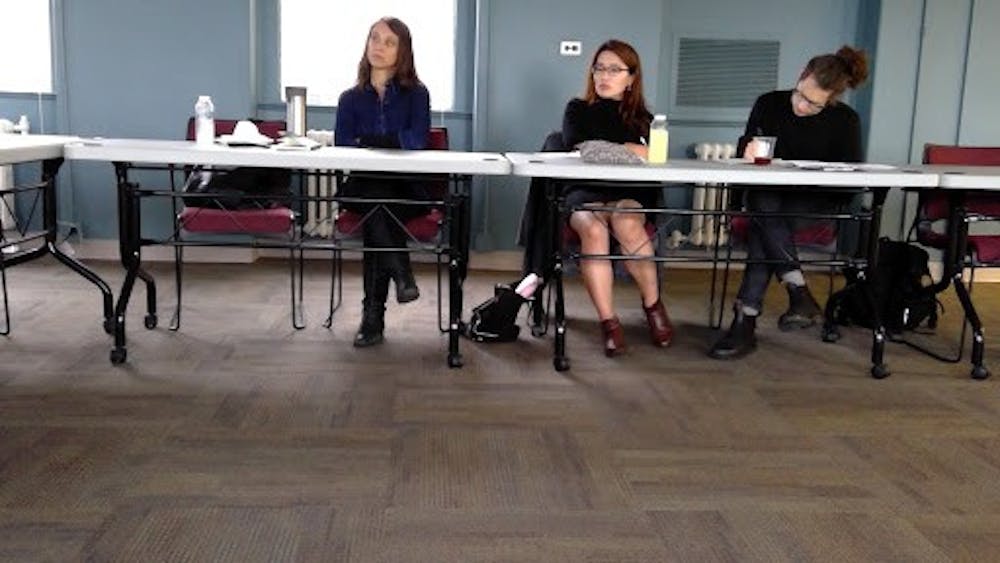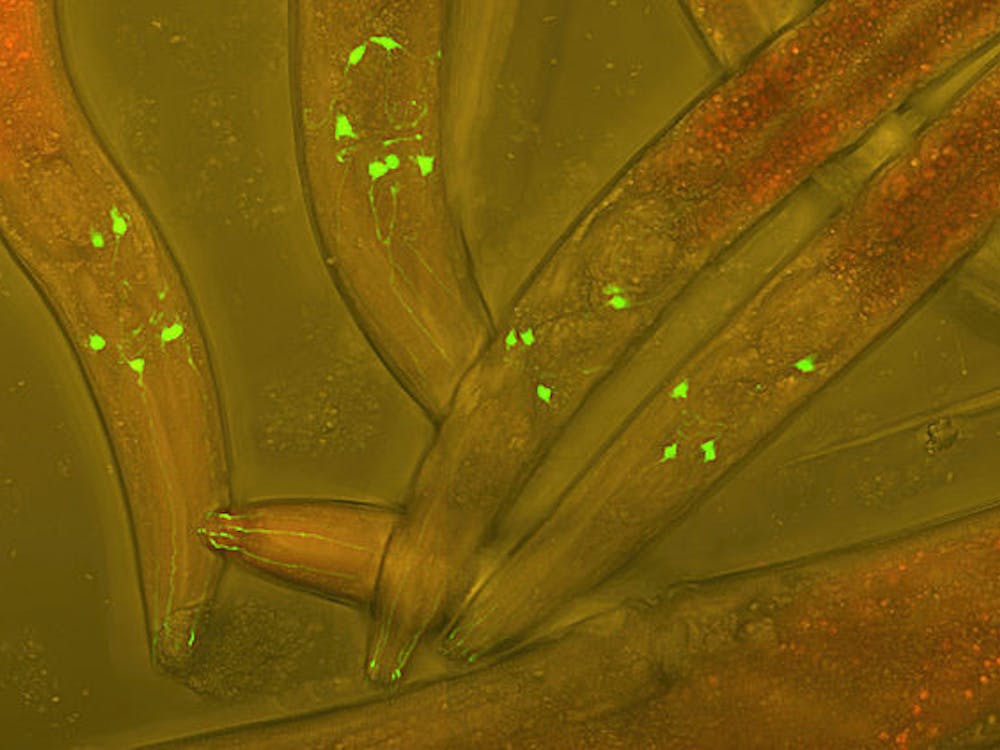The Office for Undergraduate Research, Scholarly and Creativity Activity (URSCA) launched a new initiative to foster dialogue across and beyond the humanities: the Humanities Research Clusters. Each cluster examines a theme through the lens of specialties as seemingly unrelated as indigenous literature studies and conservation ecology, such as the Postcolonialism Ecocriticism Interdisciplinary Research Cluster.
Founded by Marlo Starr and Chase Atherton, Master of Fine Arts (MFA) candidates in poetry in the Writing Seminars Department, this cluster approaches climate change by examining how indigenous people are disproportionately affected by global militarization, geopolitics and environmental degradation, how the vestiges of colonization affect current military expansion, and how different disciplines interplay to shape how we discuss the climate crisis. With potential to host a conference panel, the cluster currently plans to hold monthly seminar-style meetings, with each member able to propose texts for the group to read and discuss.
On Oct. 31, the inaugural meeting brought together post-doctoral, graduate and undergraduate students from backgrounds as diverse as literary criticism, cross-cultural poetry translation, history of farming technology and mechanical engineering. Seminar-style discussion centered on Elizabeth DeLoughrey’s “Toward a Critical Ocean Studies for the Anthropocene.” The text reflects on how literature portrays, responds to and engages with the environment.
Attendees discussed DeLoughrey’s suggestion that a feedback loop exists regarding the consumption of energy: In order to protect U.S. oil exports and energy supply, the Navy has become a “transoceanic empire” that spills out oil itself. The group explored how military expansion can be portrayed as a conspicuous display of power that affects not only relations with other countries, but also the livelihoods of indigenous people who have often been silenced. Atherton explained that this theme is present in many works by indigenous authors.
“There are lots of indigenous writers who are [talking about militarism] but they’re just not considered to be literary productions of note,” Atherton said.
For example, colonialism still lingers in Guam, which is highly militarized and faces environmental degradation. In response, natives like Craig Santos Perez have critiqued the struggle for self-mastery, for mastery over others and for mastery over the environment through poetry. This is in contrast to the English novel, Starr suggested.
“[This form maintains] the human-nonhuman binary,” Starr said. “[There is] usually a male hero against all odds, against nature, who is victorious at the end.”
The environment is something to be conquered, in irreconcilable opposition to humans.
This is in contrast to the poetry of Perez.
“[H]e engages the ocean as origin, breath, body, mother and absorber of plastic waste,” DeLoughrey writes. “[There exists] permeability between humans and the ocean... mutual responsibility and accountability.”
This multifaceted lens on climate change, refocused on the voices of the indigenous and on how the way we portray the environment shapes our discussions, is what the Postcolonialism Ecocriticism Interdisciplinary Research Cluster explores.
After reading a Hub article advertising the cluster, senior Willa Grinsfelder knew she had to attend. She remarked that this research cluster highlights how humanities disciplines have always been intimately interwoven with our environment and can merge to respond to the climate crisis.
“Seeing a research cluster where you get to sit and talk about what ecocriticism looks like with people from a range of fields I felt like would bring together a lot of the tendrils that I’d learned from other places,” Grinsfelder said in an interview with The News-Letter.





